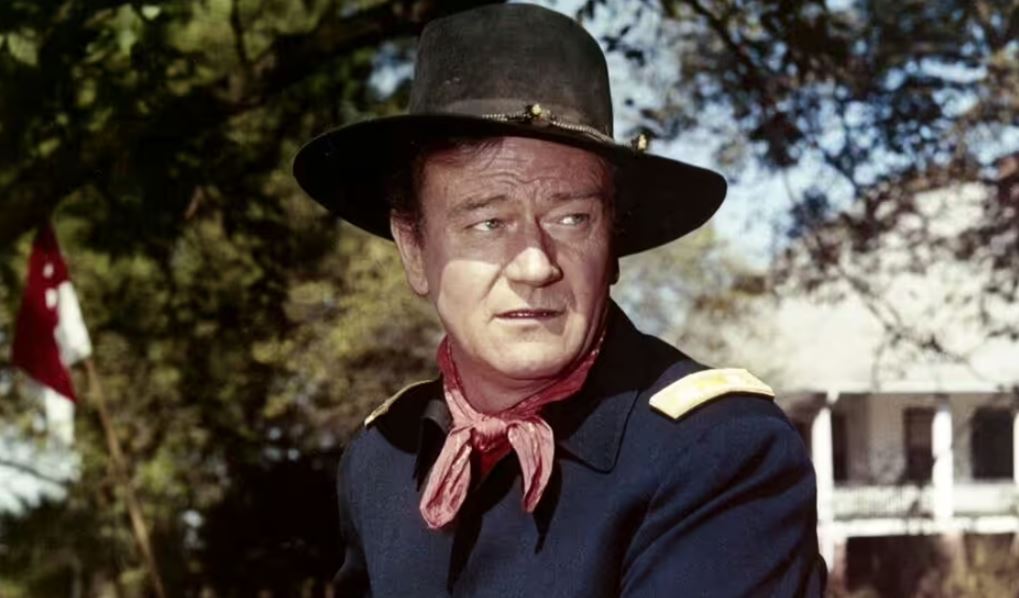Back in 1959, John Wayne teamed up with his longtime collaborator and fellow Hollywood conservative John Ford on what would be the filmmaker’s only full American Civil War movie.
Duke and his The Horse Soldiers co-star William Holden negotiated a whopping $775,000 (almost $8 million today) each, plus 20 per cent of the overall profits.
This was an unheard-of sum at the time, yet there would be none of the latter to share as the movie was a box office bomb with a “lacklustre” response from the critics and audience. What made this failure even more painful was just how incredibly tough the film had been to make.
Not only were Holden and Ford constantly arguing, but there were cost overruns, serious injuries and even a tragic death. All the while, the alcoholic director had been forced by his doctor to go sober or risk perishing from the side effects of his heavy boozing.
This made the notoriously cantankerous and uncompromising filmmaker all the more unbearable for Wayne, who was at the end of his tether.

Ford, who infamously baited his cast to get better performances out of them (including constantly insulting Wayne for not serving during World War II) was even rougher on everyone than usual. Despite Wayne not having to quit drinking, Ford demanded that Duke do the same on The Horse Soldiers set. In the end, the star begged producer Martin Rackin to get him away from the director he called Pappy just for a short while.
The producer agreed, outright lying to Ford that Wayne and Holden’s teeth were coming up yellow on film so they need to have whitening done in New Orleans. As a result, the three had a drunken night out in Crescent City, returning to set to an enraged Ford who found out via his spies just how many bars they’d visited. Wayne had certainly needed the escapism during the shoot due to the personal crisis he was facing with his wife Pilar.
Pilar had become addicted to barbiturates, but Wayne had refused to admit her to a private sanitarium, believing he could help her overcome it on location in Louisiana. However, during filming, his wife began hallucinating and even slashed her wrists with a razor. At this point, Duke realised he needed to admit her to the hospital back in Encino, California. Incredibly, this incident was kept out of the newspapers.
Meanwhile, back on The Horse Soldiers set, three actors including Ford’s son Patrick suffered broken legs. But the ultimate tragedy came when filming the movie’s climactic battle scene.
View this post on Instagram
Veteran stuntman Fred Kennedy performed a horse fall for the movie but broke his neck and died during the attempt. According to biographer Joseph Malham: “Ford was completely devastated [as he] felt a deep responsibility for the lives of the men who served under him.” Following the tragic accident, shooting was immediately shut down and moved back to Hollywood. At this stage, the filmmaker had totally lost interest in filming the scripted ending with Wayne’s character Colonel John Marlowe and his forces arriving in Baton Rouge. In the end, he simply concluded The Horse Soldiers with the lead’s farewell to Constance Towers’ Hannah Hunter before crossing and blowing up a bridge to halt the Confederate advance.
Despite the nasty sides of Ford’s character, he was well ahead of his time in sticking up for Black actors in the segregated South where they were filming the movie.
Ford had cast tennis champion Althea Gibson as Lukey to help attract African-American viewers to see The Horse Soldiers. However, her dialogue was written in an offensive and stereotypical “Negro” dialect. As a result, she asserted to the director that she wouldn’t deliver the lines as they were written. Despite the filmmaker’s usual uncompromising nature for such demands from his actors, he did agree and the script was modified. Additionally, Ford also made sure that the Black extras on location in Louisiana and Mississippi were paid the same as the White ones, which angered members of the segregated states.
